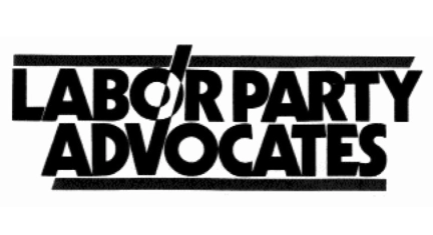2016 Elections Underscore Need for Independent Labor Political Action


Originally published 10/5/2019
By Labor Fightback Network
Once again the U.S. electorate is given the “choice” between two corporate parties and urged to vote for one of the two, despite their low ratings even among their members and supporters, not to mention independents.
To be sure, insurgents — first Sen. Bernie Sanders, who ran in the Democratic primary, and Jill Stein, expected to be the Green’s candidate (their convention is in August) — are throwing unexpected wrenches in the election machinery cycle.
The ultra-radical reactionary anti-labor Donald Trump is yet another insurgent, in his own way, in a presidential election year where a dissatisfied electorate shows unmistakable signs of disgust with business as usual.
And once again the predominant labor leadership will pour hundreds of millions of dollars into the coffers of the Democratic Party nominee, regardless of its collaboration in whittling away at issues affecting working people. On cue, AFL-CIO President Richard Trumka continues to declare that a Trump victory would be an unmitigated disaster for the labor movement, implying that a Democratic win would be a victory for the working class.
As has long been the pattern of labor politics — with a growing number of dissenters among a number of unions and millions of rank-and-file workers — “lesser evil” is the controlling consideration in determining labor’s strategy. But how is that working out?
As these lines are being written, the Democratic Platform Committee in an initial draft has rejected single-payer health care, opposition to the Trans-Pacific Partnership (TPP), and opposition to fracking. To be sure, this will be challenged in the days and weeks ahead, with the controversy settled at the Party’s convention in Philadelphia in late July. Sanders’ 1900 delegates show no signs of buckling into the fold easily, but Sanders’ opposition to Hillary Clinton continues to soften, and many expect that he will announce his support for Clinton in advance of the convention and its platform deliberations.
But the question is this: labor has been characterized as the base of the Democratic Party, so why should there be any issue including its priorities as capstones in the Party’s program?
The answer to that question is that the Democratic Party is corporate-controlled and remains subservient to the big money rollers, not to the working class. Today that Party stands exposed for the sham that it continues to perpetrate as the “party of the people.”
Needed: an Independent Labor Movement With Its Own Political Party
It is high time for labor to challenge the monopoly that Big Business exercises in the electoral arena. To be sure, this requires the spearheading of a coalition with its community allies. Labor could be a magnetic force in helping to unite tens of millions in support of a program that reflects the needs of workers, communities of color, youth, environmentalists, and other progressive forces.
For the above reasons, the Labor Fightback Network urges the formation of independent labor-community coalitions in cities and states around the country based on a program collectively decided. Such coalitions, functioning democratically, could serve as building blocks for a national party, which is indispensable, and in the meanwhile run its own candidates to challenge the status quo. The alternative is despair, dissolution, and irrelevance.
Labor’s failure to seize this rare moment will mean a continuation of the old politics which has led to a deepening of multiple crises: unending imperialist wars, as in Afghanistan; the escalation of gunning down unarmed people of color on our streets by cops out of control; social programs under attack by both parties; massive unemployment and under-employment; mass incarceration; runaway military spending; tens of millions without health care and millions more severely under-insured; the further poisoning of our environment; 50 million people living in poverty while 2/3 of all corporations pay no income taxes; upending assaults on abortion rights (despite the recent Supreme Court decision); climate change and more fracking.

